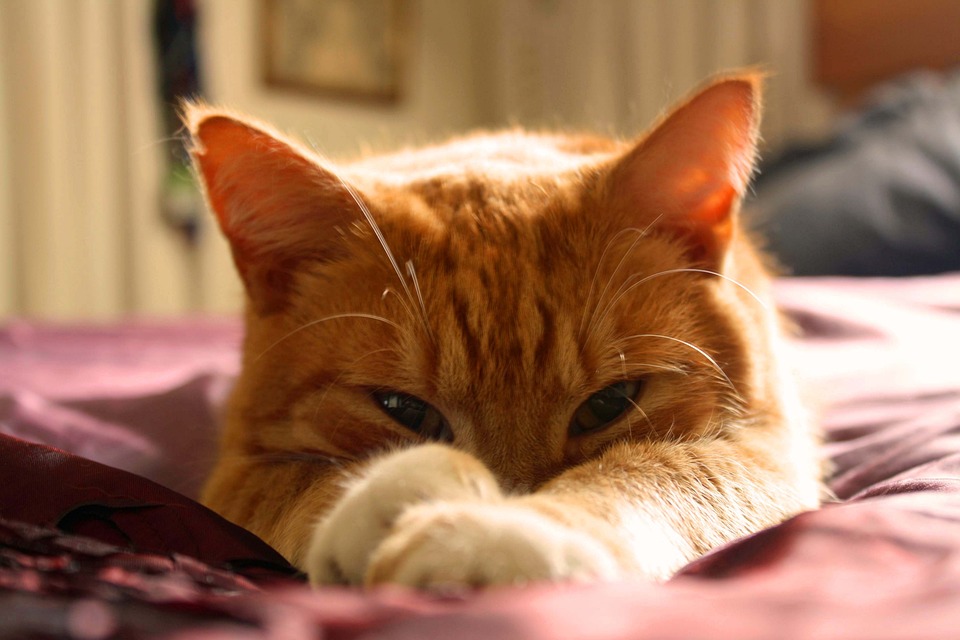Cats are known for their independent and mysterious nature, but just like humans, they too can experience stress. Stress in cats can lead to a variety of behavioral and health issues. As a responsible cat owner, it is crucial to understand the causes of stress in cats and learn how to prevent and address it. In this article, we will discuss effective strategies to keep your feline friend stress-free and happy.
Understanding the Causes of Stress in Cats
Cats are sensitive creatures, and several factors can contribute to their stress levels. It is essential to be aware of these causes to create a harmonious environment for your cat. Here are some common stressors for cats:
1. Changes in the environment: Cats are creatures of habit and can become stressed when their environment undergoes significant changes, such as moving to a new home or rearranging furniture.
2. Loud noises: Cats have acute hearing, and loud noises like thunderstorms, fireworks, or construction sounds can cause them stress and anxiety.
3. Lack of socialization: Cats are social animals, and isolation or lack of interaction with humans or other pets can lead to stress.
4. Routine disruptions: Cats thrive on routine, and sudden changes in their daily schedule, such as feeding times or litter box cleaning, can cause stress.
5. Introduction of new pets: Introducing a new pet to the household can disrupt the existing hierarchy and cause stress for resident cats.
6. Medical conditions: Cats experiencing pain or discomfort due to underlying medical conditions may exhibit signs of stress.
Preventing Stress in Cats
Prevention is the key to keeping your cat stress-free. By implementing a few simple strategies, you can create a calm and secure environment for your furry companion. Here are some tips to prevent stress in cats:
1. Provide a safe space: Cats need a designated area where they can retreat and feel secure. Set up a cozy hiding spot or a cat tree where your cat can escape to when they need some alone time.
2. Environmental enrichment: Stimulate your cat’s mind and body by providing toys, scratching posts, and interactive play sessions. This will prevent boredom and reduce stress.
3. Establish a routine: Cats thrive on predictability. Stick to a consistent schedule for feeding, playtime, and cleaning the litter box. This will create a sense of security for your cat.
4. Gradual introductions: If you are introducing a new pet to your cat, do it slowly and gradually. Allow them to sniff each other’s scent before any face-to-face interactions. This will help reduce stress and potential conflicts.
5. Minimize loud noises: During thunderstorms or fireworks, create a safe and quiet space for your cat. Use white noise machines or soothing music to mask loud noises and help your cat relax.
Addressing Stress in Cats
Despite our best efforts, cats can still experience stress. It is essential to recognize the signs of stress in your cat and take appropriate measures to address it. Here are some strategies to help alleviate stress in cats:
1. Create a calming environment: Use pheromone diffusers or sprays that mimic the natural calming scents produced by cats. These can help reduce anxiety and create a soothing atmosphere.
2. Provide vertical spaces: Cats feel secure when they have access to vertical spaces. Install shelves or provide tall cat trees where your cat can perch and observe their surroundings.
3. Play and exercise: Engage your cat in interactive play sessions using toys that mimic prey. This will help release pent-up energy and reduce stress.
4. Consult a veterinarian: If your cat’s stress levels persist or worsen, consult with a veterinarian. They can rule out any underlying medical conditions and recommend appropriate medications or therapies.
FAQs about Cat Stress
Q: How can I tell if my cat is stressed?
A: Cats exhibit various signs when stressed, including excessive grooming, changes in appetite, hiding, aggression, excessive vocalization, or litter box avoidance.
Q: Can stress in cats lead to health problems?
A: Yes, prolonged or intense stress can lead to various health issues in cats, including digestive problems, urinary tract issues, and a weakened immune system.
Q: Are there any natural remedies for cat stress?
A: Some natural remedies, such as herbal supplements like chamomile or valerian, can help calm stressed cats. However, it’s crucial to consult with a veterinarian before trying any remedies.
Q: Can neutering/spaying reduce stress in cats?
A: Neutering or spaying your cat can help reduce stress caused by sexual frustration and aggression.
In conclusion, understanding the causes of stress in cats and implementing preventive measures can significantly improve your cat’s overall well-being. By providing a safe and enriched environment, addressing stress when it arises, and seeking veterinary guidance when needed, you can ensure a happy and stress-free life for your feline friend.








